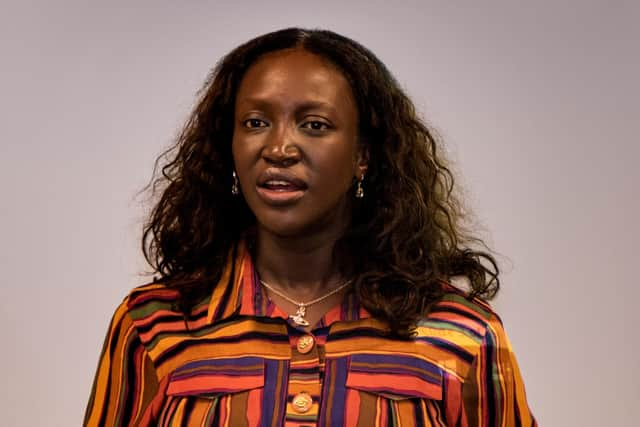Why I put a motion to York City Council to commit to being the first anti-racist city in the North - Haddy Njie
My family came to the UK from The Gambia after my mum was awarded a scholarship to study transport and logistics here. She went on to work for the United Nations.
At my first school in the UK, I was unquestioningly put into the lower sets. My mother went into the school and showed them my school grades from The Gambia. They assessed me, and I was put into the higher sets. Seeing my mother fighting for me as a child because of the systemic racism I experienced was pivotal.
Advertisement
Hide AdAdvertisement
Hide AdI moved to York with my husband for a good job opportunity. I grew up in Huddersfield, studied for a degree in Economics and Masters in International Corporate Law in Leeds and Bradford, and have lived in London and Maidenhead.


Have I experienced racism in the UK? Yes, but not to the extent I experienced it in York.
I see myself as a privileged woman, highly educated, with a good job – what about those who are less fortunate or from less privilege? What were they experiencing?
I’m from a family of high achievers. My aunties work for the World Bank. My father grew up in America, where he was a teacher, before going back to The Gambia, to set up the fishery sector. As a child, he told me about civil activists like Martin Luther King. Of what I should expect of this world, because of my skin colour, and how to deal with it.
Advertisement
Hide AdAdvertisement
Hide AdThe taxi driver incident led me on a path. I put a motion to York City Council in 2021 to commit to being the first anti-racist city in the North, emulating Brighton, and Oxford.
I started talking to different people from different backgrounds in York. The stories were unthinkable: an Asian family’s elderly parent abused by a carer with racial slurs, and dragged across the floor; a black woman being told ‘we don’t deal with people like you’ by an estate agent; a child having to move schools three times because of racial bullying.
Racism cripples lives and livelihoods.
If you go to your workplace or school, and experience it, it isolates you. Your opportunity to advance, and do well is diminished. Racism makes you feel inferior, it makes you feel less than, that you’re not as capable or as intelligent. It stops your true potential.
Many people get up and think about what they’ll achieve that day. Many people in York think, as I do, what racism will I experience today? It might be very subtle or it might be a barrier you have to fight. Mentally, you think, how am I going to deal with this?
Who can live like that?
Advertisement
Hide AdAdvertisement
Hide AdIt affects us from a social standpoint and it affects us economically in our day-to-day livelihoods. It fuels poverty, and can drive families away.
The organisation I co-founded and chair, Inclusive Equal Rights UK, works to create and maintain safe and inclusive spaces for all members of the community, regardless of race, ethnicity, religion, gender identity, sexual orientation, or ability. Our aim is to make York the first anti-racist and inclusive city in the North.
In just a few weeks, we will present a five-year strategy to York Council and councillor's full meeting, with practical, impact-driven solutions to dismantle systemic and casual racism.
It’s unlike any other approach taken by other cities, which have council-led strategies. This comes from the communities and people of York, as one powerful voice, saying: this needs to be done.
Advertisement
Hide AdAdvertisement
Hide AdOur strategy, developed from listening to different communities, is supported by extensive quantitative research conducted by IERUK and qualitative research developed by the Institute of Social Justice at York St John University.
The data to inform the strategy was obtained from council, schools, higher education, policing, healthcare, social care, housing, government agencies and the private sector.
The data is factual. Numbers do not lie. Our work found that York’s serving police force had less than 10 minority ethnic police officers. It found black residents have 90 times more stop and search rates as white residents. It showed York City Council is entirely white. There is a perception that this reflects the fact that York is a white city. But the census shows York’s ethnic minorities have increased by 14 per cent, and that more than 100 languages are spoken in York.
The data shows people are being discriminated against in York because of their skin colour. We should all come together, to work together, to stop this. We are hopeful this strategy will bring more fairness to York.
Haddy Njie is chair of Inclusive Equal Rights UK (IERUK) in York.